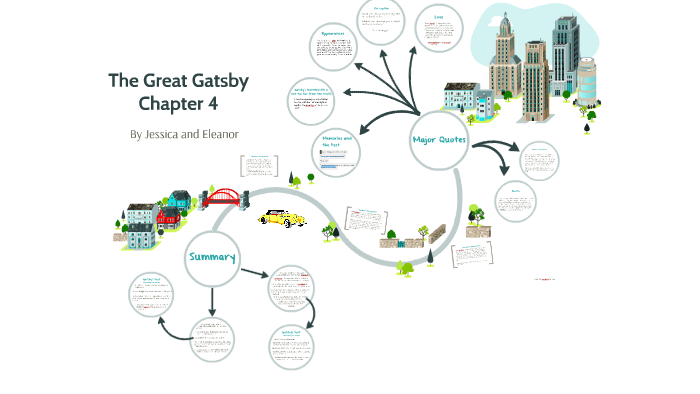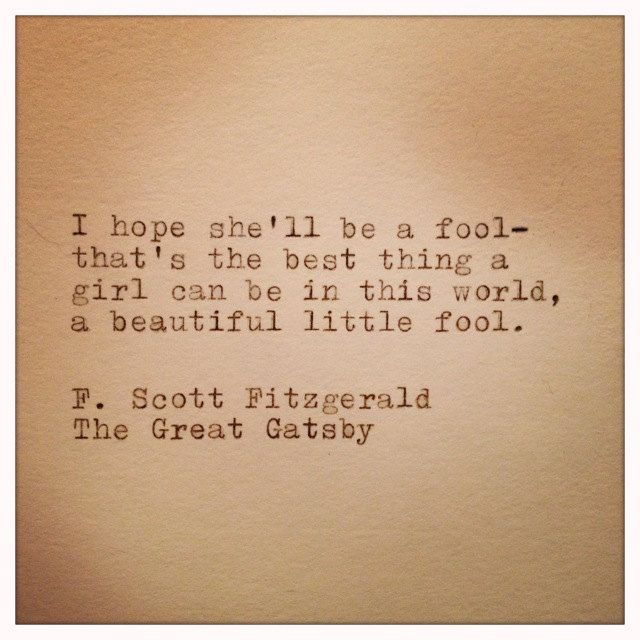Great Gatsby Quotes About Gambling
- The American Dream in The Great Gatsby by F. Scott Fitzgerald 696 Words 3 Pages. Scott Fitzgerald’s The Great Gatsby, the author uses the fact of Daisy marrying Tom because of his money while she loves Gatsby, Myrtle cheating on her husband with Tom looking to be rich, and Wilson starting his own little business looking for wealth, to show how the American Dream is impossible because it is.
- (Trimalchio — a wealthy, but very vulgar freedman — is a character from the famous satirical novel, Satyricon, by Petronius written in 1 A.D.) Thankfully Zelda, Fitzgerald’s wife, and legendary editor, Maxwell Perkins, convinced him to select 'The Great Gatsby' as the final title, inspired by Alain-Fournier’s haunting 'Le Grand Meaulnes.
They were careless people, Tom and Daisy—they smashed up things and . . . then retreated back into their money . . . and let other people clean up the mess they had made.
In this quote, which comes toward the end of the book, Nick comments on Tom and Daisy’s indifference to the negative effects of their own actions. The “things” they “smash up” in the course of the novel include Gatsby’s heart, Gatsby’s car, Gatsby’s life, Nick’s innocence, and Myrtle Wilson. Nick is disturbed by this behavior, and this quote illustrates his frustration at how much trouble Tom and Daisy cause. The novel as a whole views the wealthy as taking advantage of their class status to do whatever they please.

May 5, 2014 - Quotes gamblers live by.makes perfect sense. See more ideas about Gambling quotes, Gambling, Sportsbook. “In my younger and more vulnerable years my father gave me some advice that I've been turning.
You see I think everything’s terrible anyhow, she went on . . . “Everybody thinks so—the most advanced people. And I know. I’ve been everywhere and seen everything and done everything . . . Sophisticated—God, I’m sophisticated!
When Daisy and Nick reunite at Daisy’s Long Island home in the first chapter, Daisy explains to Nick that she has developed a cynical worldview. She tells him that this perspective is common among the upper classes. Yet Daisy’s proclamation of her sophistication rings somewhat hollow, because it’s also evident from the context that her privilege protects her from many difficult truths.
I am still a little afraid of missing something if I forget that, as my father snobbishly suggested, and I snobbishly repeat, a sense of the fundamental decencies is parcelled out unequally at birth.

Nick shares these words from his father in the novel’s opening. This quote suggests that wealth is not the only thing people are assigned unequally; that the fundamental decencies such as kindness, empathy, and consideration of others are more abundant in some people from the moment of birth. The repeated use of the word “snobbishly” is a misdirection in the quote: a true snob might assume all wealthy people are inherently better than all poor people. In fact, Nick, like his father, believes that some people are better than others regardless of their relative wealth. At the same time, we sense an element of snobbery in the assumption of any difference between people at all: a true egalitarian would say “all people are born equal.”
Great Gatsby Quotes About Wealth
In my younger . . . years my father gave me some advice . . . “Whenever you feel like criticizing any one . . . just remember that all the people in this world haven’t had the advantages that you’ve had.

In contrast to the preceding quote, this advice from Nick’s father relates directly to wealth and class inequality. It reminds Nick, and the reader, that much of Nick’s success is due to his wealthy upbringing, and establishes him as a member of the upper class. Nick, unlike Gatsby, is comfortable with his class status, and fits in naturally with Daisy and Tom’s milieu. Throughout the novel, Nick will both take his father’s advice and ignore it. He is critical of lower class characters such as Tom and Myrtle, but also admires Gatsby, despite his lower class background.
‘You make me feel uncivilized, Daisy,’ I confessed on my second glass of corky but rather impressive claret. ‘Can’t you talk about crops or something?’
Nick speaks to Daisy during their reunion at Daisy’s house in East Egg early in the book. While earlier passages in the book remind us of Nick’s relatively high social position, this passage shows us the difference between Nick’s position and his cousin’s. The reference to crops suggests a rural and unsophisticated perspective at odds with Tom and Daisy’s life in New York, but Nick is being playful: he and his cousins know well that Nick is not from a farming family. Ironically, later, we will learn that Gatsby is in fact from a family of poor farmers.
I was privy to the secret griefs of wild, unknown men. Most of the confidences were unsought—frequently I have feigned sleep, preoccupation, or a hostile levity when I realized by some unmistakable sign that an intimate revelation was quivering on the horizon.
Important Quotes In Great Gatsby
Nick offers this reflection on the first page of the novel, and his words have an important foreshadowing function. The entire story that Nick is about to relate arises from his having become a confidante for two opposing men, Tom Buchanan and Jay Gatsby. The antagonism between these men has disastrous effects, and Nick finds himself caught in the middle of it. This experience explains why, as he observes in the second sentence quoted here, Nick now goes to any lengths necessary to avoid the confidences of others.
I bought a dozen volumes on banking and credit and investment securities, and they stood on my shelf in red and gold like new money from the mint, promising to unfold the shining secrets that only Midas and Morgan and Mæcenas knew.
In the first chapter, Nick describes his plan to teach himself about finance. The fact that Nick wants to start a career in finance indicates his desire for upward class mobility—a desire he shares with many of the characters and which he will come to criticize. At this point in the story, however, Nick worships at the shrine of money, a shrine that includes both mythical and historical figures. The mythological King Midas could turn anything he touched into gold. Gaius Mæcenas acted as advisor to the first emperor of Rome and a patron to poets like Horace and Virgil. And J. P. Morgan was a titan of American finance in the late 19th and early 20th centuries.
High over the city our line of yellow windows must have contributed their share of human secrecy to the casual watcher in the darkening streets, and I was him too, looking up and wondering. I was within and without, simultaneously enchanted and repelled by the inexhaustible variety of life.
In Chapter 2, Nick, Tom, and Myrtle spend time in the Buchanans’ New York apartment. In this moment it’s getting dark, and Nick imagines what people outside the apartment must see when they look up into its well-lit rooms. Nick identifies with this imaginary watcher, although he is inside the apartment. Nick’s sense of himself split between being inside and outside nicely describes his social position in the novel. Although he hangs out with wealthy people, he is not quite one of them.
I am one of the few honest people I have ever known.
Nick declares honesty to be his “cardinal virtue” at the end of Chapter 3. As readers, we should be suspicious when a narrator makes this type of claim. Nick says he’s among the most honest people he knows, but at this point in the novel the reader only has his word to go on. Although Nick hasn’t given much indication that he is an unreliable narrator, how can the reader be sure? Throughout the novel, we aren’t even sure if Nick is being honest with us. For example, he frequently expresses his contempt for Daisy, Tom, and Gatsby, yet continues to spend time with them, accept their hospitality, and even help Gatsby have an affair with Daisy. Nick’s actual honesty is a matter of interpretation left to the reader.
Unlike Gatsby and Tom Buchanan, I had no girl whose disembodied face floated along the dark cornices and blinding signs, and so I drew up the girl beside me, tightening my arms. Her wan, scornful mouth smiled, and so I drew her up again closer, this time to my face.

With these words from Chapter 4, Nick distinguishes between the kind of relationship he has with Jordan and the kind of relationship Gatsby and Tom have with Daisy. Nick thinks Gatsby and Tom both idealize Daisy in ways that privilege fantasy over actuality. Instead of seeing Daisy as a physically existing person, they see her as a girl with a floating, “disembodied face.” By contrast, Nick claims to take Jordan as she actually is, without idealizing her. Perhaps because he doesn’t idealize Jordan, Nick doesn’t have the same consuming passion for her that Tom and Gatsby have for Daisy. This line suggests Nick begins a relationship with Jordan because she is literally the closest available female.
Americans, while occasionally willing to be serfs, have always been obstinate about being peasantry.
Nick writes these sardonic words in Chapter 5, where he makes one of his characteristically broad observations about American society. This particular observation appears after Nick explains how the man who originally designed Gatsby’s house wanted to have all of the neighboring cottages’ roofs thatched in the medieval European style. The neighbors refused, and Nick links this refusal to Americans’ refusal to be “peasants.” In the feudal hierarchy of the Middle Ages, peasants were actually relatively freer than serfs, the latter of whom were more like slaves. Nick’s words are therefore ironic. Americans are willing to enslave themselves to money and upward mobility (serfdom), but they’re unwilling to appear poor (peasantry).
“They’re a rotten crowd,” I shouted across the lawn. “You’re worth the whole damn bunch put together.”
I’ve always been glad I said that. It was the only compliment I ever gave him, because I disapproved of him from beginning to end.”
Nick addresses these words to Gatsby the last time he sees his neighbor alive, in Chapter 8. This moment nicely captures Nick’s ambivalent feelings about Gatsby. Even though he disapproves of Gatsby until the end, Nick still winds up taking his side. Nick feels sympathetic toward Gatsby in part because of the relative depravity and despicableness of Tom and Daisy, and also because Gatsby has no other real friends. Nick feels glad to have returned the confidence that Gatsby placed in him, even if the man has risen no higher in Nick’s estimation.
Quotes About Gatsby's Past
That’s my Middle West—not the wheat of the prairies or the lost Swede towns, but the thrilling returning trains of my youth, and the street lamps and sleigh bells in the frosty dark and the shadows of holly wreaths thrown by lighted windows on the snow.
Quotes In The Great Gatsby About Poverty
This quote appears in the final pages of the novel, when Nick expresses his nostalgia for riding the train home from school for winter breaks. Nick’s words set up a suggestion he makes later in the same paragraph, that “this has been a story of the West, after all.” Nick reminds the reader that all the main characters in his story came from the western United States, and we learn that soon after the events described in the book, he moved back home, as the East had become “haunted” for him.